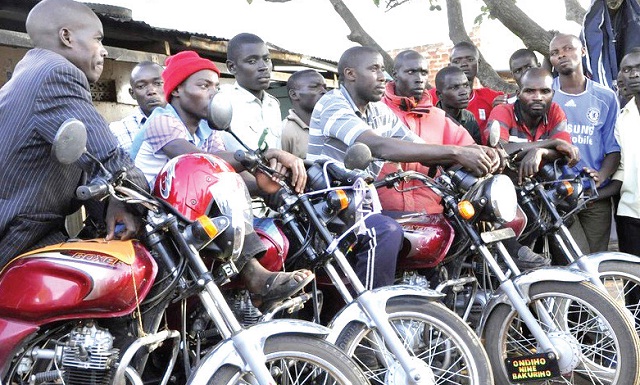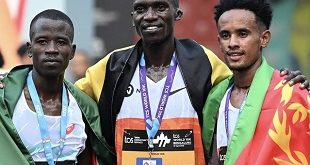
Kampala, Uganda | THE INDEPENDENT | Boda boda operators in Kampala have raised concern over the numerous government efforts to organize the industry, describing them as disorganized and uncoordinated.
There have been several attempts to organize the boda boda operations by Kampala Capital City Authority-KCCA.
In February 2022, the State Minister for Kampala and Metropolitan Affairs Kabuye Kyofatogabye announced that boda bodas would be registered and trained. He said the Deputy Resident City Commissioners in the five divisions of Kampala would spearhead the process. He also announced that the Uganda Driving Licensing Agency-UDLS would train boda boda riders as part of the registration process and would be tested to ascertain if they are mentally fit. Over 7,000 riders had been trained by UDLS by August 2022.
In August 2022, another process started with KCCA conducting what it referred to as a census of boda bodas riders. At the start, the KCCA Deputy Executive Director Eng. David Luyimbazi said they would also adopt the registers of the Deputy Resident City Commissioners. At one point, there was an incomplete registration process conducted by the deputy Resident City Commissioners, ongoing training by UDLS, and then the KCCA census, all efforts targeting one industry.
KCCA however denied any involvement in the registration process spearheaded by the DRCCs while the Ministry of Works and Transport distanced itself from the training conducted by UDLS. It should be noted that the Minister for Kampala and the Works Minister Gen. Katumba Wamala were instrumental in calling upon riders to register and also train with UDLS.
Frank Mawejje, the chairman of Smart Boda Association in Kawempe says that the different efforts to register or conduct a census of riders in the city have only left them confused. He says that although KCCA recently concluded the process, it was a census rather than a registration, and the information they gathered is similar to what was asked of them in 2013 during the reign of Jennifer Musisi.
Another rider and administrator of Boda Boda Industry Uganda, Ibrahim Sekajja questions why there were three processes being run all with the intention to streamline operations in the industry and yet with no clear indication of where the processes would lead.
Sekajja says the Ministry of Kampala, the Ministry of Works, and the KCCA political leadership should harmonize their efforts if they are to help in building the boda boda industry.
According to Sekajja, the best way to organize the industry is to fast-track the KCCA draft ordinance on Public Transport Management which shall provide guidelines on operating boda bodas in Kampala.
Eng. Joel Wasswa, the manager of Transport and Traffic at KCCA says that KCCA had nothing to do with the registration conducted by the Deputy Resident City Commissioners-DRCC. He says that they started a separate process through which they have counted over 42,000 riders.
According to Wasswa, they shall gazette stages for boda bodas to operate, determine how many can be at a stage, issue uniforms, and ensure they have licenses among others.
Amanda Ngabirano, the Chairperson of the National Physical Planning Board and head of Paratransit Urban Mobility Consultative Forum acknowledges the gap in the government’s efforts to streamline operations of boda bodas.
She says there should be proper coordination among government agencies and proper planning such that the stakeholders know what the next step is.
Ngabirano says that for government to ably streamline operations of the boda boda industry, the riders should be engaged because they are the experts in their job. She says there can only be an effective way to organize boda bodas in Kampala if they are involved since they know what works for them and how it can be reconciled with government plans.
According to the study commissioned by Friedrich Ebert Stiftung, boda bodas in Kampala are organized into several associations and SACCOs. However, these are politically motivated with politicians using them to achieve their interests.
This, the study finds has turned boda boda organizations into basic social survival infrastructure that has been easily compromised, manipulated, and exploited for political gain.
*****
URN
 The Independent Uganda: You get the Truth we Pay the Price
The Independent Uganda: You get the Truth we Pay the Price



